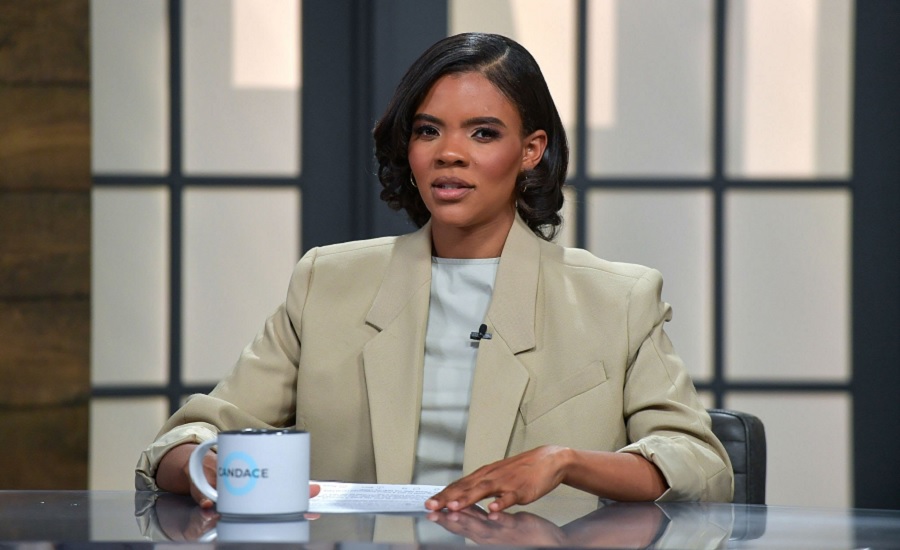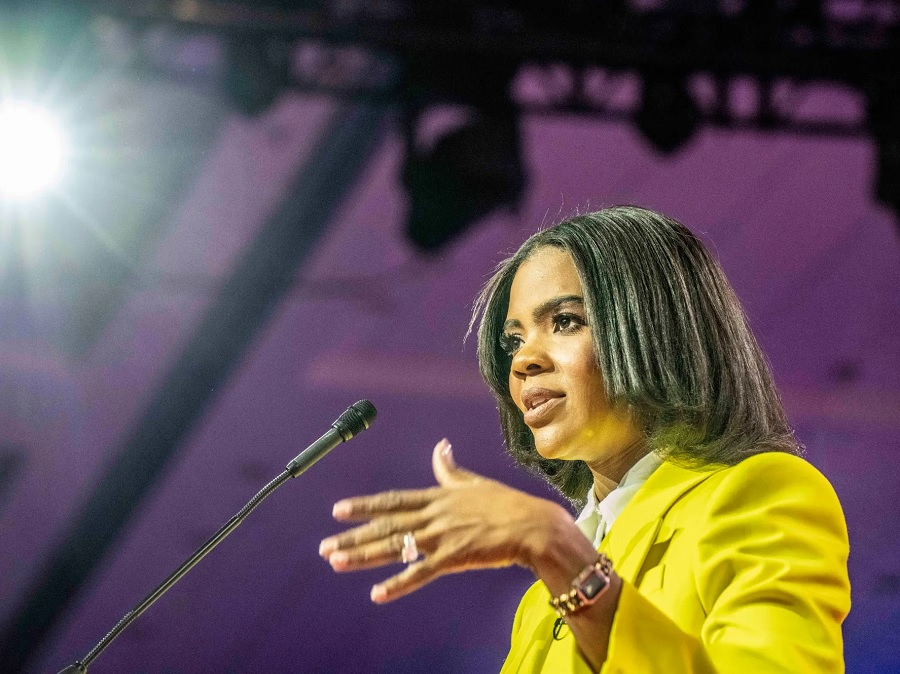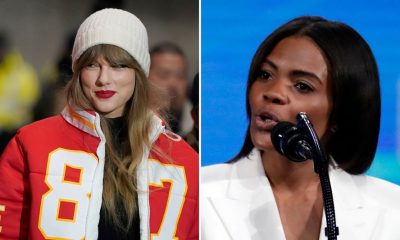CELEBRITY
Candace Owens has good News and wants Feedback, Firstly We have a tentative date for me to bring the show back and Secondly, I just joined this app Minnect which allows followers to directly text and video message me with a guaranteed response… I would definitely hire people from it. Let me know your thoughts!

Conservative political commentator Candace Owens recently went after Kim Kardashian’s brand SKIMS for using a model in a wheelchair to advertise the brand’s new adaptive clothing line.
This is not the first time Owens has gone after Kardashian. For years, Owens has spoken out about the reality TV star for not having “a soul” over her relationship with Balenciaga, snubbed her by posing with Kardashian’s ex-husband Kanye West at a “White Lives Matter” fashion show and even claimed to have leaked an old audio recording allegedly of Kardashian talking about Whitney Houston.
In the final minutes of a recent episode of Owens’ podcast on the Daily Wire — a conservative news site founded by Ben Shapiro and Jeremy Boreing — the host expressed her confusion and irritation with the ad starring a model in a wheelchair.
“I don’t really understand how far we’re going to take this inclusivity thing,” Owens says. “We are being ridiculous, America.”
As someone who once titled a podcast episode “Why Some People Deserve to Be Discriminated Against,” disability advocates are not necessarily surprised by Owens having this opinion. But Owens has a platform that reaches 1.4 million subscribers on YouTube alone.
“When I saw [her] comments and how boldly wrong she was, I knew I had to respond,” disability advocate and TikTok user Liv told In The Know. Liv asked to be referred to by her first name only. “I don’t think she realized or maybe just didn’t consider how many people live with disabilities, and clearly she had no idea what adaptable clothing even is.”
Liv filmed a response to Owens on her TikTok account, which has since racked up more than 355,000 views. Liv has built her online following by openly talking about being disabled on social media for almost a year.
She told In The Know that she intentionally chose to frame her response as educating people rather than getting mad at Owens.
“There were a lot of people who genuinely did not know what was wrong with Ms. Owens’s comments, and I don’t believe they are evil,” she said. “I believe they are just ignorant.”
The model in the SKIMS campaign, Haleigh Rosa, was one of the people who stitched a response to Owens with Liv’s TikTok. Rosa has been paralyzed from the waist down since a 2015 car accident and has been a vocal advocate within the fashion world for visibility and at the forefront of pushing for disability rights.
In a similar vein to Liv, Rosa decided to use the opportunity to educate.
“We both studied journalism, but since only one of us seems to have finished our degree. I’m happy to educate you,” Rosa said in her video. “This isn’t the first nor the last campaign you will see with a wheelchair. We’re not only in adaptive campaigns, we’re everywhere.”
In place of an apology, Rosa advised Owens to instead donate to Rosa’s nonprofit, the For—Everyone Foundation.
Even if Owens retracted her statements, Liv pointed out that the larger problem is that Owens isn’t alone in thinking this way. Whether they are Owens supporters or not, there are still people who do not understand the need for adaptive clothing.
This is why Liv decided to film her own adaptive clothing as a visual way to demonstrate to unknowledgeable commenters and viewers why it’s so important for people with disabilities.
“I have Ehlers-Danlos syndrome and orthostatic hypotension,” Liv explained in her video. “So all of these things combined can make it really hard for me to bend down at times. So these pants that I’m wearing actually have a zipper so I can just take them off that way.”
For Liv, who is personally neither a fan nor a follower of the Kardashian family, the fact that a large brand like SKIMS took notice of the need for adaptive fashion is a major win for the community.
“Kim is a smart businesswoman, so she saw [the need for adaptive clothing], and decided to create her own version,” Liv said to In the Know. “I’m ecstatic that big brands are creating more options for us, but on the flip side, the original creators of adaptive clothing, who are usually disabled people themselves, don’t get credited.”
Adaptive clothing isn’t new. People with disabilities have always existed, thus ways of adjusting fashion to fit their needs have always been commonplace. One of the earliest examples of adaptive fashion was in 1948 when British woman Gladys Reed created a belt with hip pockets so that she could more easily carry the battery packs for her hearing aid.
The adaptive clothing market size was estimated to be worth $262.7 million in 2022 and is anticipated to inflate to $301.1 million by 2028.
Owens has not responded to the backlash from disability advocates.














